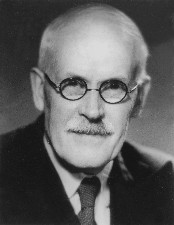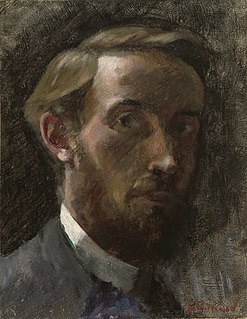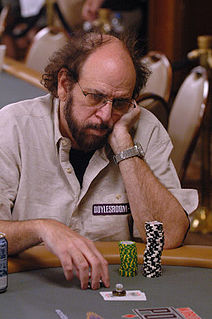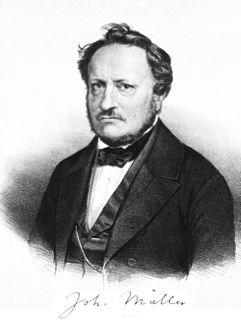A Quote by Jacques Barzun
In ordinary speech the words perception and sensation tend to be used interchangeably, but the psychologist distinguishes. Sensations are the items of consciousness--a color, a weight, a texture--that we tend to think of as simple and single. Perceptions are complex affairs that embrace sensation together with other, associated or revived contents of the mind, including emotions.
Related Quotes
As you are aware, no perceptions obtained by the senses are merely sensations impressed on our nervous systems. A peculiar intellectual activity is required to pass from a nervous sensation to the conception of an external object, which the sensation has aroused. The sensations of our nerves of sense are mere symbols indicating certain external objects, and it is usually only after considerable practice that we acquire the power of drawing correct conclusions from our sensations respecting the corresponding objects.
Love is not a feeling; it's a sensation. Drinking water when you're thirsty is a sensation, not a feeling. Being in nature or swimming in the sea is a sensation, not a feeling. Lying down when you're tired is sensational, not a feeling, although you may say it feels good. Feeling is an emotional interpretation of experience and these sensations don't need interpretation; they are just good or right. Making physical love rightly is a sensation, not a feeling. So is the love of God. The same goes for joy and beauty; both are sensational.'
We have no proper understanding of the relationship between conscious thought and conscious sensation. The various forms of thought and sensation are underpinned by very different neural mechanisms; so how can the neural correlate of their conscious natures be the same? I don't think we are yet in a position to make such speculations. To make progress, we have to have a good conception of the phenomenology of consciousness, among other things.
Since consciousness is the basis of all reality, any shift in consciousness changes every aspect of our reality. Reality is created by consciousness differentiating into cognition, moods, emotions, perceptions, behavior, speech, social interactions, environment, interaction with the forces of nature, and biology. As consciousness evolves, these different aspects of consciousness also change.
The love of God uplifts and enlarges us. I can never think of myself anymore as exclusively in this body; I feel that I am present in all bodies. I have no awareness of race or other distinctions at all. In my perceptions, just as I feel my own consciousness in every part of my physical form, I feel you all to be a part of me. Everything that is living I feel within this body. I know the sensations of all. It is not imagination; it is Self-realization. This consciousness is far beyond telepathy. It is awareness of the perceptions of every being. That is the meaning of Christ Consciousness.
Not bodies produce sensations, but element-complexes (sensation-complexes) constitute the bodies. When the physicist considers the bodies as the permanent reality, the 'elements' as the transient appearance, he does not realise that all 'bodies' are only mental symbols for element-complexes (sensation-complexes).
Paradigms power perception and perceptions power emotions. Most emotions are responses to perception - what you think is true about a given situation. If your perception is false, then your emotional response to it will be false too. So check your perceptions, and beyond that check the truthfulness of your paradigms - what you believe. Just because you believe something firmly doesn't make it true. Be willing to reexamine what you believe.
I like large sounds and very complex sonorities, and I also tend to opt for creating a feeling of vast space. I could achieve this effect either by using a symphony orchestra, which for a dance piece is pretty much impossible these days, or by using a synthesizer on multi-channel tape and a superb sound system, to get that same sensation of expansiveness and depth.



































